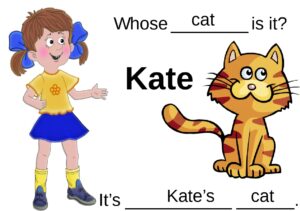Who’s is a contraction linking the words who is or who has, and whose is the possessive form of who. They may sound the same, but spelling them correctly can be tricky. To get into the difference between who’s and whose, read on.
Both who’s and whose come from the pronoun who (shocking, right?).
Who’s is a contraction, meaning it’s two words stuck together. The formula: who + is, or who + has.
For example: who’s hungry?
Whose is a possessive pronoun. Use it when you’re asking (or telling) to whom something belongs.
For example: whose sandwich is this?
Here’s a tip: Want to make sure your writing always looks great? Grammarly can save you from misspellings, grammatical and punctuation mistakes, and other writing issues on all your favorite websites.
Article icon
Your writing, at its best
Be the best writer in the office.
But, when you need “whom” to explain what “whose” means, more information is needed. Plus, even though who’s is a contraction and whose is possessive, put them together and you sound like an owl starting to fall asleep. That’s because these two words are homophones, meaning they sound the same, but mean different things. Keep your apostrophes where they belong by continuing through this explanation of who’s vs. whose.
What Is Who?
First up, let’s introduce this exceptionally tricky pronoun. It has many forms, and many a brave soul has cowered in the attempt to use it correctly.
Who
Who is a subject pronoun, like he, she, I, or they, but it’s the interrogative used for animate subjects. In other words, use it to ask a question about which person did something or is someone.
“Who is in charge here?” “Who asked you to go to the dance?” “Who is that?”
Whom
This is the bane of many an English-speaker’s existence. But it’s not as hard as you think: whom is an object pronoun, meaning if you could replace it with “him,” “her,” “me,” or “them,” you’re good to go.
“Whom are you referencing?” “Whom did you ask to go to the dance?” “To whom are you speaking?”
Yeah, we know—it sounds stuffy. But if you want to be correct correct, that’s how it works.
And now, on to the spelling culprits. Whose vs. Who’s Image
Who’s or Whose
They sound the same: hoos. It rhymes with shoes.
So: is it who’s shoes? Or whose shoes?
Who’s
To recap, “who” is the pronoun used to mean “what or which person or people.” Add the apostrophe and the s for these reasons:
Who’s = who + is or
Who’s = who + has
Really. It’s that simple.
Who’s is a contraction. That means the apostrophe stands in for a letter that goes missing to make pronunciation easier and quicker. Imagine saying “I do not know who is going to go.” Out loud, it’ll probably sound more like “I don’t know who’s gonna go.” The jury’s still out on gonna, but we’d guess you’ve already heard of using an apostrophe to mark an omitted word or sound. Wouldn’t y’all agree?
Whose
Whose shoes? Translation: to whom do the shoes belong?
Whose is a pronoun used in questions to ask who owns something or has something. In other words, whose is about possession.
Don’t be tricked: on the one hand, because grammazons mark possessive nouns with apostrophe + s, it’s tempting to think that who’s (not whose) is the possessive form of who. But apostrophes are also used in contractions. That’s what the apostrophe indicates in who’s, and that’s why whose is the possessive form of the pronoun .
Think of it this way:
Its = belonging to it It’s = contraction of it is or it has Whose = belonging to whom Who’s = contraction of who is or who has
Incidentally, Who’s shoes? would mean “Who is Shoes?” Some folks have strange nicknames. Like Blue. Whose clues? Blue’s clues.
Weirdly, the above sentence wouldn’t mean “Who has shoes?”—you’d probably say “Who’s got shoes?” if that’s the meaning you’re after.
Example sentences using who’s
Who’s as strong as an ox?
My aunt is someone who’s living in California.
Tony told me who’s coming to the party.
Example sentences using whose
Whose dog chewed up my homework?
You and whose army!?
The ring came from a fire whose light was as bright as a star.
When I figure out whose paper this is, I’ll sign it.
